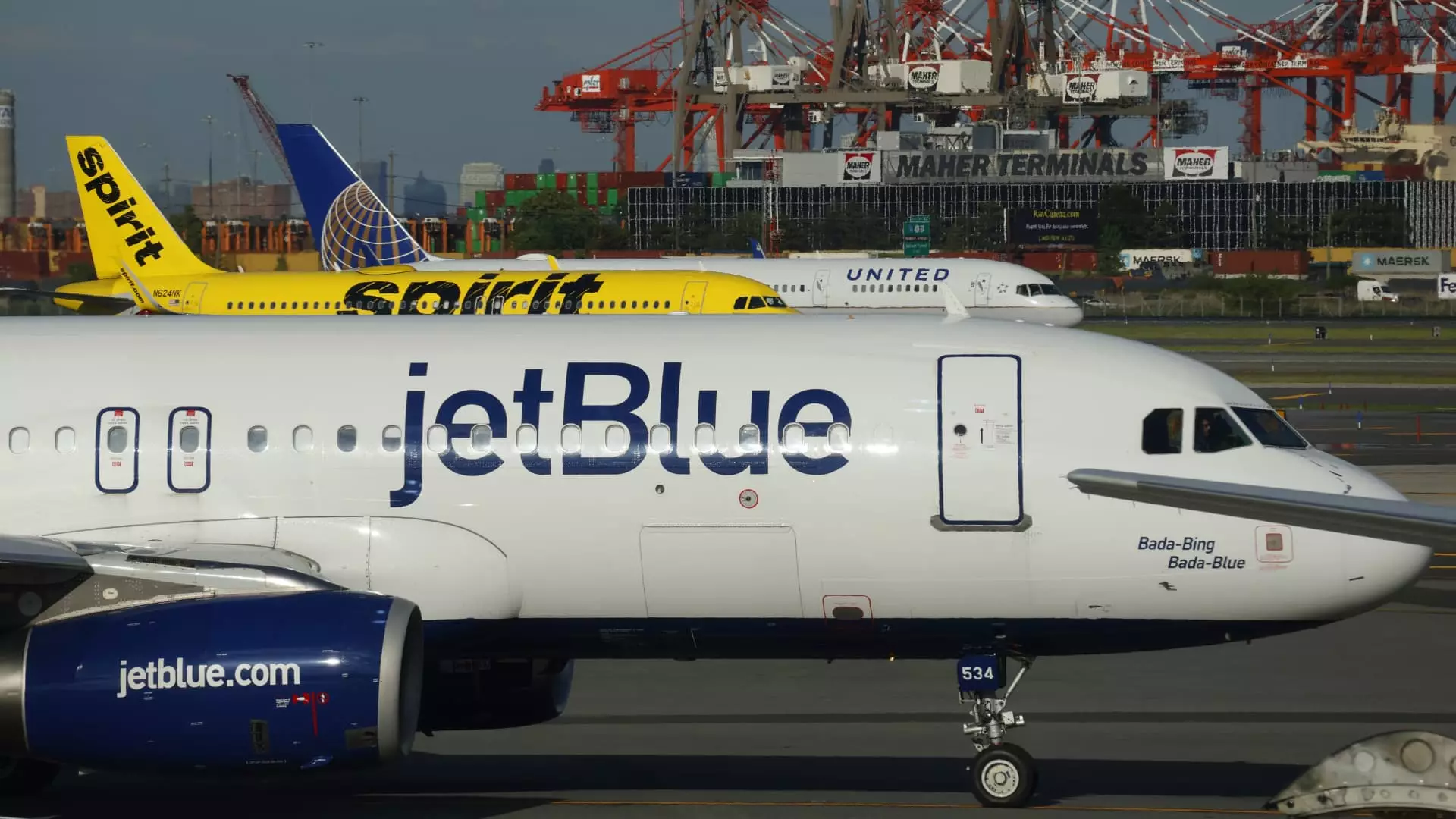In an industry that has already been struggling with profitability, cash-strapped low-cost and deep discounter airlines are now faced with a new challenge. The impact of engine repairs, combined with a significant decrease in revenue due to an oversupply of flights, has forced airlines like Spirit Airlines, JetBlue Airways, and Frontier Airlines to reevaluate their growth plans. While larger carriers have managed to return to profitability, the same cannot be said for these budget airlines. The forced grounding of planes due to engine recalls has only exacerbated the situation, pushing airlines to rethink their approach to new aircraft orders.
Years of delays in aircraft deliveries have created a backlog for carriers, making them wary of adding too many planes too quickly. This backlog has forced airlines to smooth out their orders, with some carriers even deferring deliveries to as late as 2029. JetBlue Airways, for example, expects to save about $3 billion by deferring 44 Airbus A321 airplanes until 2029. Similarly, Frontier Airlines is deferring 54 Airbus aircraft to at least 2029 in an effort to manage its supply more effectively. These delays are not just a result of the engine recalls, but also due to the overall challenges faced by the industry.
The decision to defer new aircraft deliveries comes with significant financial implications for airlines. Not only are they saving money on the initial purchase price of the planes, but they are also looking to reduce costs in other areas. JetBlue Airways, for example, is scrambling to cut costs through deferrals and other measures like exiting unprofitable routes. The airline is also grappling with the challenge of grounded jets from a Pratt & Whitney engine recall, making the deferral of new aircraft a “double-edged sword.” The need for growth is hindered by the inability to take delivery of planes that end up sitting on the ground, hurting the airline’s financial health even further.
Despite the moves by low-cost carriers to defer new aircraft orders, the global airline industry continues to face challenges. New fuel-efficient planes are in short supply, leading to higher lease rates for popular models like the Airbus A320 and Boeing 737 Max. Lease rates have reached record highs, making it even more difficult for airlines to manage their costs. Both Boeing and Airbus are struggling to increase output due to skilled worker shortages and supply shortfalls, further limiting the availability of new aircraft. Even with thousands of unfilled orders for popular models, the industry is still feeling the strain of the post-Covid hangover.
As airlines navigate these challenges and make tough decisions about their fleet plans, the future remains uncertain. Executives are actively looking for ways to mitigate cost pressures, including offering voluntary leave programs and halting hiring. The flexibility of order books from suppliers like Boeing offers some relief, but the overall impact of deferring new aircraft orders will be felt for years to come. With demand for new planes still high, airlines must find a way to balance their growth ambitions with the financial realities of the industry. The path forward will require careful planning and strategic decision-making to ensure long-term sustainability.


Leave a Reply